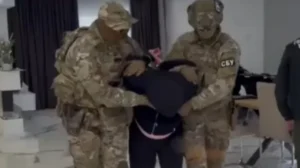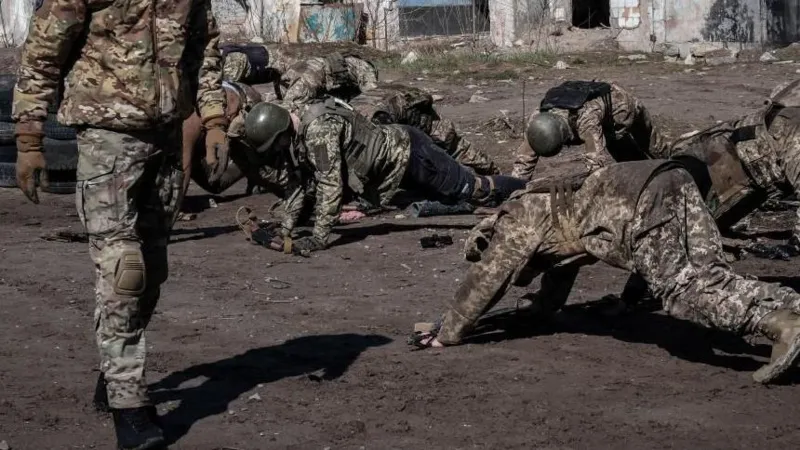Top Story: Death of Ethnic Hungarian Soldier Sparks Diplomatic Firestorm Between Hungary and Ukraine
By [BBC MEDIA], International Correspondent
Budapest / Kyiv — The death of 45-year-old ethnic Hungarian Jozsef Sebestyen, weeks after his alleged forced conscription into the Ukrainian army, has ignited a fierce diplomatic standoff between Hungary and Ukraine, casting a harsh spotlight on Kyiv’s controversial recruitment practices during wartime mobilization.

Sebestyen, a dual Ukrainian-Hungarian citizen from Berehove in western Ukraine’s Transcarpathia region, died in a psychiatric hospital on July 8 — less than a month after he was reportedly beaten with iron bars and forcibly drafted on June 14. According to testimonies from his family, he was subjected to severe abuse after refusing to sign military papers, and was threatened with front-line deployment if he did not comply.
“They took me to a forest with many other men and started beating me there,” Sebestyen is quoted as having told his siblings before his death. “The beatings were mainly to the head and body. They said that if I didn’t sign something, they would take me to ‘zero’ [the front line]. It hurt so much, I couldn’t move.”
The Ukrainian military has categorically denied any wrongdoing. A statement issued hours after Hungarian Prime Minister Viktor Orban publicly condemned the incident claimed that “no physical injuries were found during the medical examination,” and rejected all allegations of “forced labour, inhuman treatment or human rights violations.”
However, the Hungarian government is not convinced. On July 10, Ukrainian ambassador Sandor Fegyir was summoned to the Hungarian Foreign Ministry in Budapest. Prime Minister Orban, who has long criticized Ukraine’s leadership and its bid to join the European Union, was unambiguous in his condemnation:
“A Hungarian citizen was beaten to death in Ukraine. A few kilometres from the Hungarian border. A country where this can happen cannot be a member of the EU,” he posted on Facebook.
The row comes amid deepening tensions between the two governments. In May, a spy scandal erupted, leading to arrests and the expulsion of diplomats. More recently, Hungary released results of a “national consultation” in which over two million citizens reportedly voted against Ukraine’s EU accession — citing reasons including alleged human rights abuses.
Forced Conscription in Wartime Ukraine
Sebestyen’s case has intensified scrutiny of Ukraine’s conscription policies as the country grapples with significant military losses in its ongoing war with Russia. Reports have emerged of widespread abuse, ignored medical exemptions, and unregistered arrests by so-called “conscription squads.” In some cases, desperate families have allegedly been asked to pay thousands of dollars in bribes to keep loved ones out of the military.
Speaking anonymously to the BBC, a Hungarian resident of Transcarpathia claimed:
“I keep hearing from relatives of those taken by the military that they receive back their clothes covered in blood. The situation has been getting worse since the start of the war, but it got particularly bad in the past two months.”
Ukraine’s Human Rights Ombudsman Dmytro Lubynets has confirmed his office received 3,500 complaints regarding conscription abuses in 2024, and more than 2,000 already in 2025. Over 50 military recruiters are currently facing criminal charges, though rights advocates say far more needs to be done.
EU and International Legal Concerns
Ukraine suspended the right to conscientious objection when martial law was declared in February 2022. In March 2025, the Venice Commission of the Council of Europe warned Kyiv that it must implement a civilian alternative to conscription that is not punitive and remains clearly separate from military service.
The death of Jozsef Sebestyen may now become a pivotal test case — not just of Ukraine’s military conduct, but of its broader commitment to democratic norms and human rights as it continues to seek EU membership and Western military aid.
As Sebestyen’s family mourns, Hungary is demanding full accountability. Ukraine insists it will cooperate with a “transparent investigation.” But with political tensions escalating and allegations stacking up, this latest tragedy risks becoming more than a bilateral dispute — it could pose a serious obstacle to Ukraine’s European ambitions.
